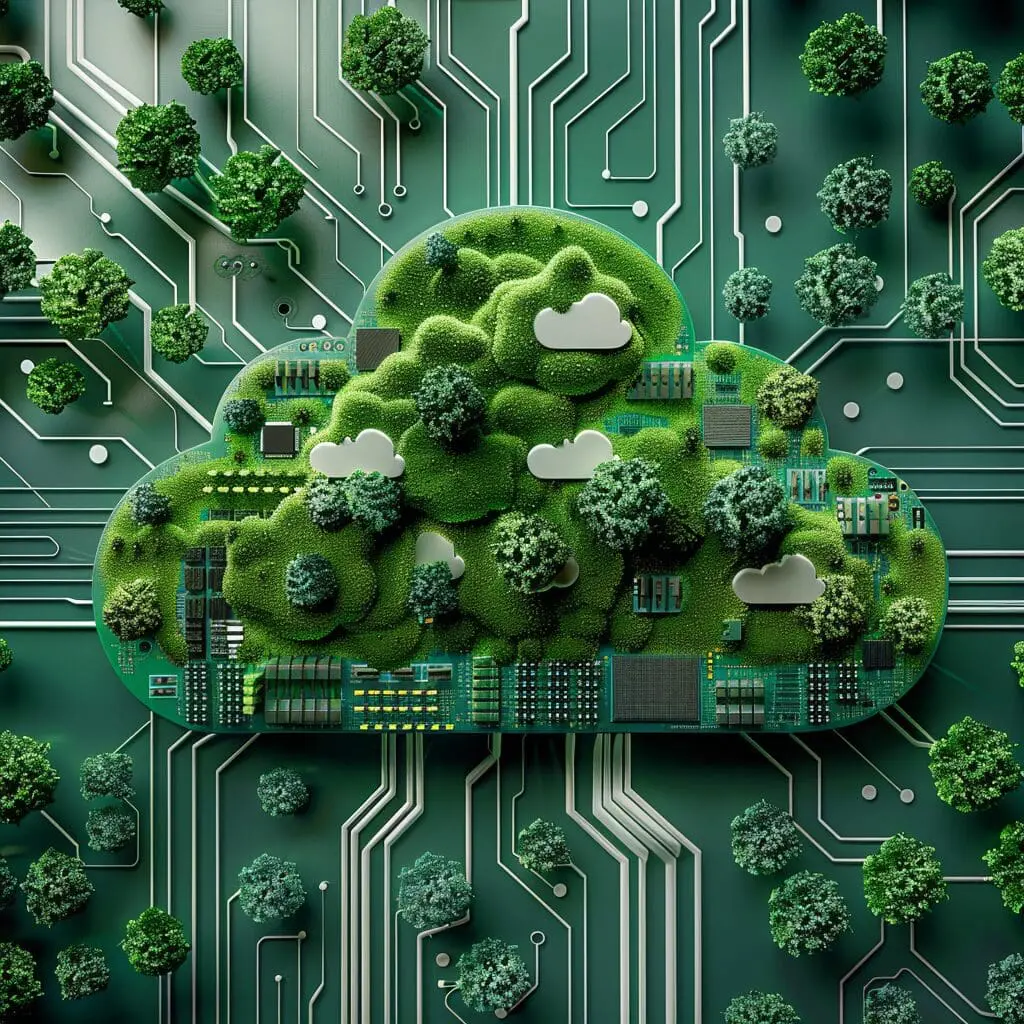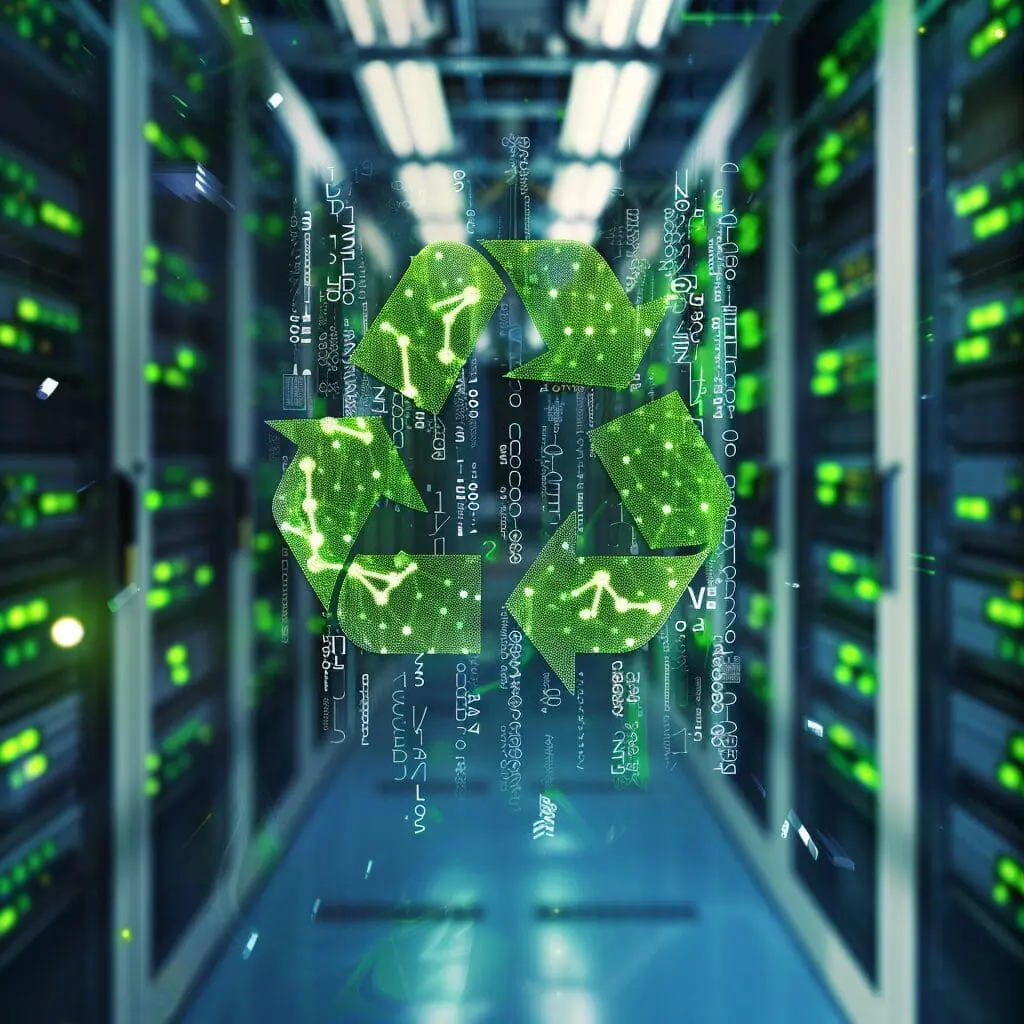

In an unprecedented collaboration, Data4 has partnered with the University of Paris-Saclay to introduce a groundbreaking initiative – establishing the world’s first bio-circular data centre. This revolutionary project aims to tackle and reduce environmental impacts associated with conventional data centres, focusing on innovative reuse of excess heat and CO2 emissions. By using a natural photosynthesis mechanism, the project pioneers the cultivation of specially engineered algae. This algae excels in carbon capture, being 20 times more efficient than trees, and has the potential to serve as a sustainable biomass for powering data centres and creating essential bio products for the cosmetics and agri-food industries. The goal of this €5 million, 4-year endeavour is not only to advance data centre sustainability but also to promote local job creation, boost economic growth, and support the principles of the circular economy in renewable energy projects.
Data4’s venture into creating the world’s first bio-circular data centre, in collaboration with the University of Paris-Saclay, exemplifies a forward-thinking approach to energy sustainability and reusability. By harnessing heat typically wasted by data centres, this project challenges the status quo by redirecting excess thermal energy towards cultivating specially engineered algae. This algae thrives on carbon dioxide and excess heat, efficiently converting these into a renewable biomass. The biomass not only powers data centres, reducing their carbon footprint, but also serves as a raw material for creating bioproducts for industries like cosmetics and agri-food. Viewing heat not as a by-product but as a resource, Data4 is paving the way for a new era of sustainable energy solutions, aligning with global efforts towards environmental sustainability and energy efficiency. This innovative approach benefits data centre managers and supports sustainability initiatives in reducing energy consumption.
In a groundbreaking innovation, Data4’s bio-circular data centre is transforming the way we think about carbon emissions, waste heat, and reducing energy consumption. Unlike traditional data centres, which largely view excess heat as a nuisance, this pioneering project sees it as a resource, contributing to sustainable development. By employing a unique mechanism that mimics natural photosynthesis, Data4 and the University of Paris-Saclay are not only addressing greenhouse gas emissions but also repurposing them to tackle environmental challenges. The carbon dioxide and excess heat generated by the data centre are used to cultivate a strain of algae, engineered to be highly efficient at carbon capture. This process not only negates the environmental impact of the data centre’s operations but also turns these emissions into valuable bioproducts, promoting a circular economy. These products, ranging from sustainable energy sources to raw materials for the cosmetics and agri-food industries, exemplify a true commitment to sustainable industrial practices and environmental challenges. Data4’s initiative confronts climate change and opens up novel pathways for sustainable industrial practices.
In a significant stride towards combating climate change and promoting sustainability, Data4’s biocircular data centre introduces an innovative algae-based biomass system. This system represents a remarkable advancement in technology, showcasing unparalleled efficiency in carbon capture and sustainable energy production, aimed at reducing energy consumption and complying with environmental regulations. By leveraging the natural process of photosynthesis in specially engineered algae, this initiative not only transforms excess CO2 and heat into a highly efficient biomass but also paves the way for a new generation of green energy solutions, emphasising resource efficiency. The algae-based biomass serves a dual purpose; it acts as a renewable energy source capable of powering data centre operations and as a key ingredient in producing bioproducts for a wide range of industries. This forward-thinking approach not only reduces the environmental footprint of data centres but also significantly contributes to the circular economy, showcasing a compelling model for future energy sustainability.
At the core of Data4’s bio-circular data centre initiative is a vision for a sustainable future, addressing food security and the global energy transition. By using engineered algae to convert CO2 and heat into biomass, Data4 promotes environmental sustainability and contributes to the agri-food industry. This algae, more efficient than traditional carbon capture methods, offers a new way to produce sustainable bioproducts, potentially transforming food production and lowering environmental impact. As the project progresses, it ventures into energy transition by providing sustainable biomass for clean energy. Data4’s commitment to reducing data centre carbon footprint and promoting sustainable practices in the energy sector marks a step towards a more sustainable and food-secure future, aiming to reduce energy consumption, water usage, and promote energy efficiency in managing big data.
While Data4’s bio-circular data centre stands out as a beacon of environmental sustainability and innovation, it also brings significant economic benefits. Central to its design is the concept of a circular economy, where waste is not only reduced but turned into a valuable resource. The cultivation of specially engineered algae not only helps in reducing the data centre’s carbon footprint but also generates biomass that powers the data centre and provides raw materials for various industries. This innovative approach not only cuts operational costs by repurposing what would be waste but also spurs economic growth by opening up new markets for bioproducts. Additionally, the partnership with the University of Paris-Saclay demonstrates a dedication to local job creation and skills development, nurturing an ecosystem of innovation and economic opportunity within the community. In this context, Data4’s initiative presents a compelling model of how sustainable technologies, artificial intelligence, and machine learning can drive economic benefits, showcasing that environmental responsibility and economic prosperity can coexist effectively while reducing waste.
In footsteps that echo much beyond its immediate environmental contributions, Data4’s groundbreaking bio-circular data centre is casting ripples across the social landscape, particularly in terms of local employment and economic upliftment. By engaging in a symbiotic partnership with the University of Paris-Saclay, Data4 isn’t just pioneering a new approach towards sustainable data management; it’s also actively contributing to the local economy by fostering job creation and skill development within the community. This innovative project stands as a testament to how technology and environmental sustainability can be harmoniously aligned with social advancement, sketching a blueprint for future initiatives that aim to balance ecological responsibility with economic and societal growth. Through this, Data4 not only showcases a successful model of a circular economy but also underscores the potential for such sustainable ventures to act as engines of national economic rejuvenation and social welfare, thus ensuring a better world for future generations. The project also plays a vital role in reducing pollution from outside air, aligning with the United Nations’ sustainability goals. By managing vast amounts of data efficiently, Data4 sets a standard for environmentally conscious practices that benefit both present and future generations.
Over the next 24 months, the eagerly anticipated €5 million bio-circular data centre project by Data4 is poised to revolutionise the sustainable technology landscape, meeting sustainability goals. Building upon its foundational work in employing algae-based biomass for carbon capture and energy production, this initiative is primed to enter a critical phase of development and testing. Companies and stakeholders can expect to see tangible advancements in the scalability of this technology, with a specific focus on enhancing the system’s efficiency and its integration into existing data centre infrastructure to benefit the environment. The project promises to deliver not only a significant reduction in carbon emissions but also a viable, renewable energy source that could redefine energy usage in the digital age. Coupled with its potential contributions to the agri-food industry and local economies, Data4’s project is on the cusp of setting new benchmarks for innovation, sustainability, and circular economy practices in the technology sector.
In a world where technological advancement and environmental stewardship are increasingly intertwined, Data4’s bio-circular data centre initiative offers a groundbreaking opportunity for individuals and businesses alike to contribute to a more sustainable future. By engaging with Data4, whether as a partner, investor, or advocate, you can help accelerate the shift towards more sustainable data management practices. Supporting this project not only positions you at the forefront of innovative green technology but also allows you to actively participate in reducing the carbon footprint associated with digital activities. Furthermore, by spreading the word and encouraging the adoption of such sustainable practices within your network, you play a vital role in fostering a wider understanding and acceptance of the importance of circular economy models in achieving our global sustainability goals. Join us in this pivotal moment in history, where your contribution can help pave the way for a cleaner, greener, and more sustainable digital age.

This website uses cookies to improve your experience. Choose what you're happy with.
Required for the site to function and can't be switched off.
Help us improve the website. Turn on if you agree.
Used for ads and personalisation. Turn on if you agree.
This website uses cookies to improve your experience. Choose what you're happy with.
Required for the site to function and can't be switched off.
Help us improve the website. Turn on if you agree.
Used for ads and personalisation. Turn on if you agree.